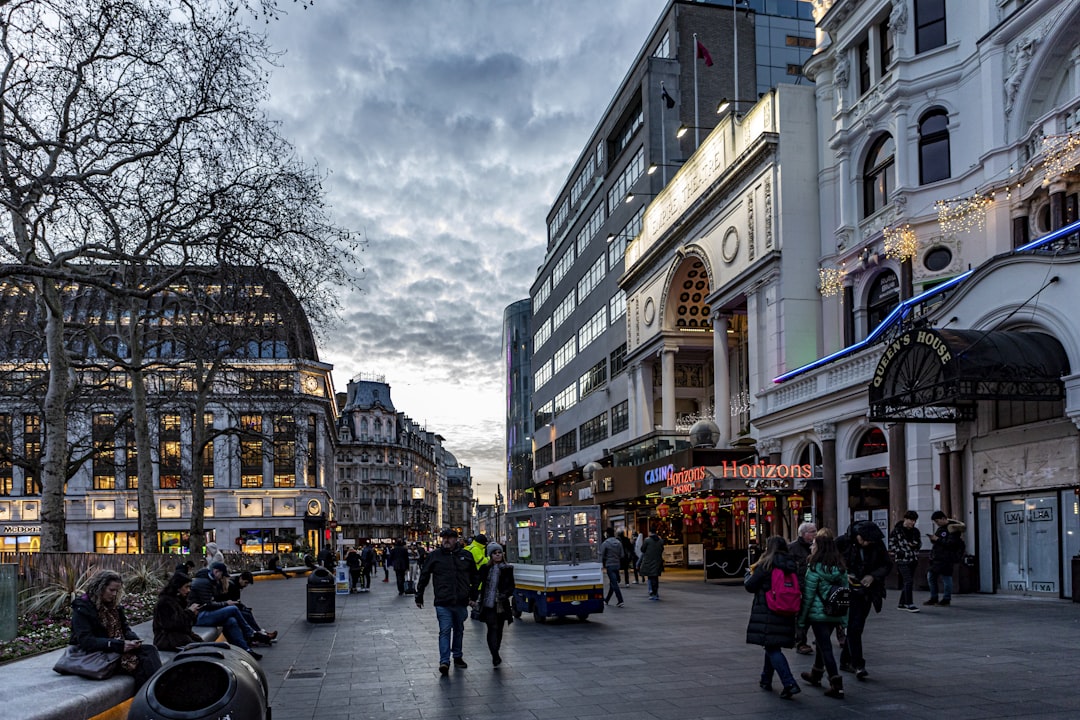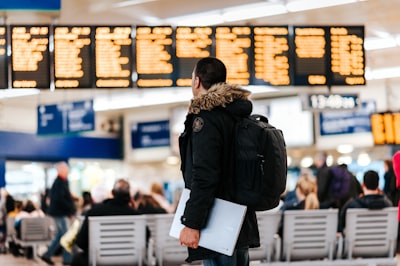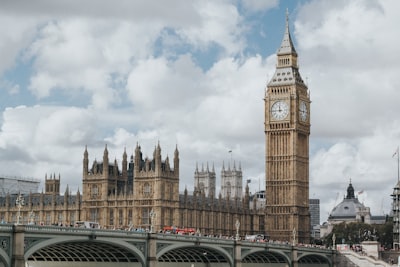8 things to get sorted during your first week in the UK
Since most of the isolation requirements imposed as part of the Covid-19 travel restrictions have been relaxed, we thought it timely to suggest a list of things to get sorted in your first week in the UK that would help you settle in more quickly.
Typically, your first week in the UK will border on excitement, confusion over the culture shock and a slew of tasks to complete. You might not know where to begin as a first-timer so, here is our recommended to-do list to spare you hours of research.
Photo by Hulki Okan Tabak on Unsplash
1. Pick up your BRP
The Biometric Residence Permit (BRP) is an identity card that bears the full details of your identity and visa status. It confirms your ability to study, work and rent a place. In other words, it's practically your visa. In your first few days in the UK, you will need to have your BRP to prove your identity and UK resident status to get through settling in.
Another reason to get your BRP in the first week is to double-check that the information printed on it is accurate. You have 10 days after receiving the BRP to notify the Home Office if there is an issue. The address to pick up your BRP is normally specified on your visa letter.
2. Get a UK sim card
Ideally, this should be the first thing you do when you arrive in the UK because you'll want to avoid paying expensive roaming fees if you need to call home. Also, you'll also be filling out a bunch of paperwork that requires you to provide your contact information. When getting a sim card, you need to look out for a provider with a good mobile signal in your area.
There are two options when choosing a mobile phone plan: contract or “pay-as-you-go”. You can easily get a “pay-as-you-go” sim initially and later on switch to a contract plan (post-paid plan) after you have built a good credit rating in some months of living in the UK.
3. Get to know your local area
This should go without saying, but it's important to take a tour of your neighbourhood to learn about the amenities within your area. To begin, use Google Maps to locate the local services and grocery stores for your daily needs. Walking around your neighbourhood will help you figure out where your local retailers are located, and you may even discover local attractions, interesting vistas, and lesser-known paths.
4. Register with your local GP surgery
Everyone living in the UK is entitled to free medical services provided by the NHS - the UK public healthcare system. These services became accessible to you with the payment of the Immigration Health Surcharge (IHS) fees at the time of your visa application. As a newcomer in the UK, you have to be registered to a hospital (popularly known as a General Practitioner GP surgery) within your vicinity so you can access healthcare services. Registering with a local GP ensures that you have an NHS number which makes your medical records easily accessible whenever you see the doctor.
It also helps to know the medical services within your location in case of a health emergency. To register with a GP, you are usually required to complete a form and show proof of identity, your address, and medical records (if applicable).
Once you are registered, you can book an appointment to see the doctor when the need arises.
It is worth noting that the following NHS services are free: hospital treatment in case of Accident and Emergency, contraceptive services, maternity care and other treatments recommended by your doctor.
5. Figure out your local transportation route and get a transport card
When you're new to a country, one of the most crucial things to think about is how to commute around the city to get to your new job, school, or some touristy stop. The United Kingdom has a great public transportation system with well-connected intra-city and inter-city lines. Many people consider taking public transportation as a less expensive option to driving, hence the train is a popular means of transportation. Other modes of transportation include underground trains (aka The Tube), trams, buses, the DLR, and riverboat services, among others.
As a regular public transportation user, getting a transport card and railcard will save you money, so I recommend researching your daily route, connections, stops, and time schedules to help you plan accordingly. TFL apps are available in London to assist you with this.
In most cities, private taxi services and ride-hailing services are excellent options for convenience. If you intend to drive in the UK, it is worthwhile to obtain a UK driver's licence and familiarise yourself with the country's driving rules.
6. Apply to Open a Bank Account
Getting a bank account in the UK as a newcomer doesn't come easily so we recommend that you try to get it sorted as soon as you arrive.
While the UK has a large variety of banks that offer suitable banking services, setting up an account can be difficult because of strict security measures.
To open an account you will need to provide some identification document and the real challenge - proof of a UK address. Having proof of address is a major hurdle for most newcomers since they are unlikely to have one in the first week of arrival.
As a student, most schools provide assistance for you to easily access banking services. You can choose from a range of banks, from the traditional high street banks to the digital banks, to manage your finances online or through a branch.
7. Apply for your National Insurance Number
Whether you are in the UK for the purpose of work or study, you will likely need to apply for a National Insurance number (NIN), an essential identifier for the UK social security system. You need to have a NIN to work, pay taxes and apply for benefits. Getting a NIN can take up to 16 weeks, so it's recommended to apply as soon as you have your BRP so you can get it on time. Technically, you can start working before your NIN is issued. The entire process of applying for a NI number can be completed online.
Maze tip - applying for a NIN will get you an official letter that you can use as proof of your UK address.
8. Register with the Police (If applicable)
Depending on your personal circumstance – your nationality and visa type- you may need to register with the police once you arrive in the UK. This is normally stated on the entry visa vignette and must be done within 7 days of arrival in the UK. To register, you need to present your documents to the nearest local police station in your environment. After registration, you will be issued a Police Registration Certificate (PRC).
It can be tough settling into a new country. Getting through some of these processes might be a hassle and even the best-laid plans may not go as smoothly as you hoped. Yet, once you've made it through the first few weeks, immerse yourself in your new experience - the culture, the food, the scenic places- and you will find it rewarding.
There you have it! 8 important tasks you need to sort out in your first week. If you need some help, don’t forget to reach out to us.
Maze provides an end-to-end platform that disrupts the traditional relocation model.
We connect people relocating with service providers, reduce cost and enable the personalization of customer journeys to the UK.
Follow us on Instagram, Twitter, Facebook and LinkedIn, or Contact us with your relocation enquiries.


